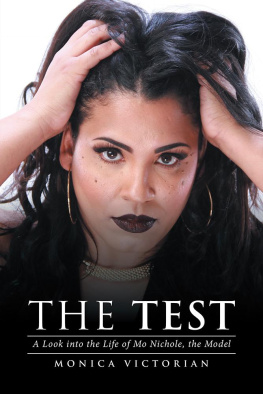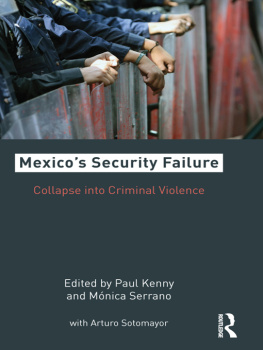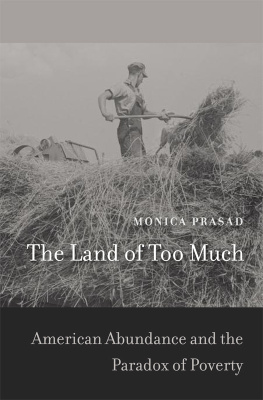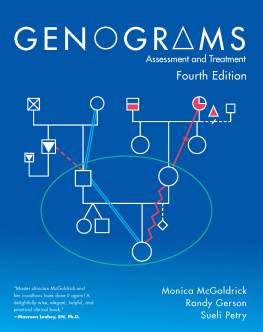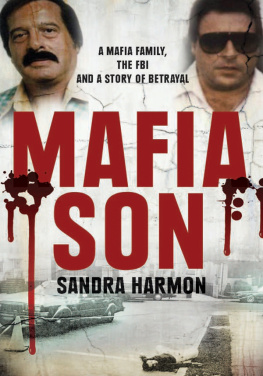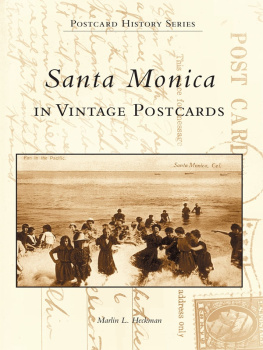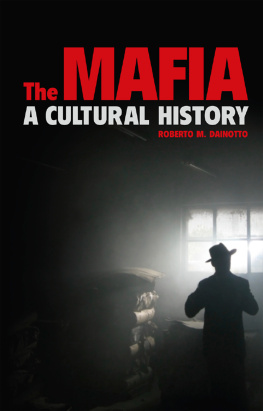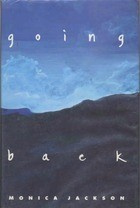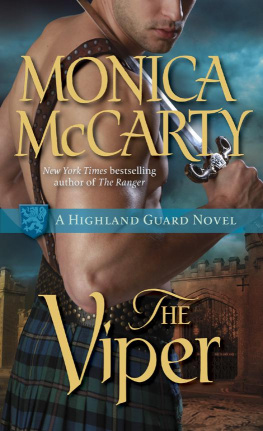
Mafia Violence
Using in-depth field research and analysis of case studies, Mafia Violence: Political, Symbolic, and Economic Forms of Violence in Camorra Clans focuses attention on the phenomenon of violence performed by Italian organised crime groups, devoting specific attention to the Camorra, which has been responsible since the mid-1980s for almost half of all mafia homicides documented in Italy. The Camorra has acquired increased visibility at an international level due to its intense use of violence and high level of dangerousness, but until now, the study of the different forms of violence implemented by mafias has not received systematic attention at the scientific level. Hence, this book fills this gap by providing a both theoretical and empirical contribution toward the analysis of one of the most unknown although highly visible and dangerous dimension of mafias action.
This collection of work by distinguished scholars provides a unique overview of the multifaceted characteristics of violence currently performed by mafia groups in Italy by focusing on specific actors i.e., Camorra clans but also other traditional mafia organisations such as Cosa Nostra and Ndrangheta; specific contexts i.e., different territories and different markets, both legal and illegal; and specific practices and performances. Part I takes a diachronic and comparative perspective to provide an overview of mafias violence during the past 30 years, focusing on the three most prominent criminal organisations active in Italy: Camorra, Cosa Nostra, and Ndrangheta. Based on the outcomes of a major project carried out by a research group at the University of Naples Federico II from 2015 to 2017, Part II looks at the use of violence by Camorra clans, incorporating information from case studies, judicial files, law enforcement investigations, wiretappings, interviews with privileged observers, firsthand empirical data, and historical documents and social sciences literature.
Using a multi-disciplinary approach drawing from criminology, sociology, history, anthropology, economics, political science, and geography, this book is essential reading for international researchers and practitioners interested in piecing together the full picture of modern organised crime.
Monica Massari, PhD, is Associate Professor of Sociology at the Department of Political Science, University of Naples, Federico II, Italy. In 2015 she was elected member of the Executive Committee of the European Sociological Association (ESA) and is member of the Global Initiative against Transnational Organized Crime Network of experts. Among her recent publications published in English, edited books and journals include: Reconsidering Transnational Organised Crime in the Shadow of Globalisation: the Case of Human Smuggling across the Mediterranean (Hart Publishing, 2017); At the Edge of Europe: The Phenomenon of Irregular Migration from Libya to Italy (Palgrave, 2015); The Sacra Corona Unita. Origins, Characteristics and Strategies (Springer, 2014); and Guns in the Family: Mafia Violence in Italy (Cambridge University Press, 2013).
Vittorio Martone , PhD, Lecturer in Sociology, works at the Department of Culture, Politics and Society of the University of Turin, Italy. Among his recent English publications in this field: Marketisation of Social Services and Mafia Infiltration: The Case of Migrant Reception Centres in Rome (in European Review of Organised Crime , n. 4, 2017); and State, Markets, and Mafias: Political-Criminal Networks and Local Governance in the Campania Region (in European Review of Organised Crime , n. 1, 2014).
Routledge Advances in Criminology
European Developments in Corporate Criminal Liability
Edited by James Gobert and Ana-Maria Pascal
The Myth of Moral Panics
Sex, Snuff, and Satan
Bill Thompson and Andy Williams
Drugs and Popular Culture in the Age of New Media
Paul Manning
Criminal Justice in International Society
Edited by Willem de Lint, Marinella Marmo, and Nerida Chazal
American Smuggling as White Collar Crime
Lawrence Karson
Young Men and Domestic Abuse
David Gadd, Claire L. Fox, Mary-Louise Corr, Steph Alger and Ian Butler
Frank Tannenbaum: The Making of a Convict Criminologist
Matthew G. Yeager
Reinforcement Sensitivity Theory
A Metatheory for Biosocial Criminology
Anthony Walsh
Mafia Violence
Political, Symbolic, and Economic Forms of Violence in Camorra Clans
Edited by Monica Massari and Vittorio Martone
For more information about this series, please visit: www.routledge.com/Routledge-Advances-in-Criminology/book-series/RAC
Mafia Violence
Political, Symbolic, and Economic Forms
of Violence in Camorra Clans
Edited by Monica Massari and
Vittorio Martone
TRANSLATION AND EDITING
Brent Waterhouse
First published 2019
by Routledge
52 Vanderbilt Avenue, New York, NY 10017
and by Routledge
2 Park Square, Milton Park, Abingdon, Oxon, OX14 4RN
Routledge is an imprint of the Taylor & Francis Group, an informa business
2019 Taylor & Francis
The right of Monica Massari and Vittorio Martone to be identified as the authors of the editorial material, and the authors for their individual chapters, has been asserted in accordance with sections 77 and 78 of the Copyright, Designs and Patents Act 1988.
All rights reserved. No part of this book may be reprinted or reproduced or utilised in any form or by any electronic, mechanical, or other means, now known or hereafter invented, including photocopying and recording, or in any information storage or retrieval system, without permission in writing from the publishers.
Trademark notice : Product or corporate names may be trademarks or registered trademarks, and are used only for identification and explanation without intent to infringe.
Library of Congress Cataloging-in-Publication Data
A catalog record for this title has been requested
ISBN: 978-1-138-60677-7 (hbk)
ISBN: 978-0-429-46755-4 (ebk)
Typeset in Times New Roman
by Swales & Willis Ltd, Exeter, Devon, UK
In memory of Paola Monzini
The editors would like to warmly thank all those who supported them during this research and contributed to the understanding of the multifaceted dimensions of mafia violence. In particular, our gratitude goes to Salvatore Coluccello from the University of Coventry and Michel Peraldi from the Centre dAnalyse et dIntervention Sociologiques (CADIS), cole des Haute tudes en Sciences Sociales (EHESS), Paris, who were part of the project, Nando dalla Chiesa (University of Milan), Isaia Sales (University of Naples Suor Orsola Benincasa) and Marcella Marmo (University of Naples Federico II) who provided their precious input and suggestions during two workshops that marked the beginning and the end of our project. Moreover a number of scholars, judges, experts, social workers, journalists, teachers and anti-mafia activists took part in various seminars and round-table discussions promoted by the research team in Naples and elsewhere. Our thanks go to Maria Carmela Agodi, Maria Rosaria Apuzzo, Roberto Carro, Ivan DAnna, Marco Del Gaudio, Franca Imbergamo, Maria Iannario, Giovanni Laino, Giovanni Melillo, Cesare Moreno, Salvo Palazzolo, Patrizia Palumbo, Domenico Piccolo, Maria Porzio, Roberta Rao, Gerardo Rinaldi, Giuseppe Russo, Roberto Scarpinato and Giovanni Starace for their contribution and support. We also owe special thanks to our colleagues at the Department of Political Science who hosted and supported the project and those of Lirmac (Interdisciplinary Laboratory for Research on Mafias and Corruption), Department of Social Sciences, University of Naples Federico II, who provided input and suggestions during the field research.





